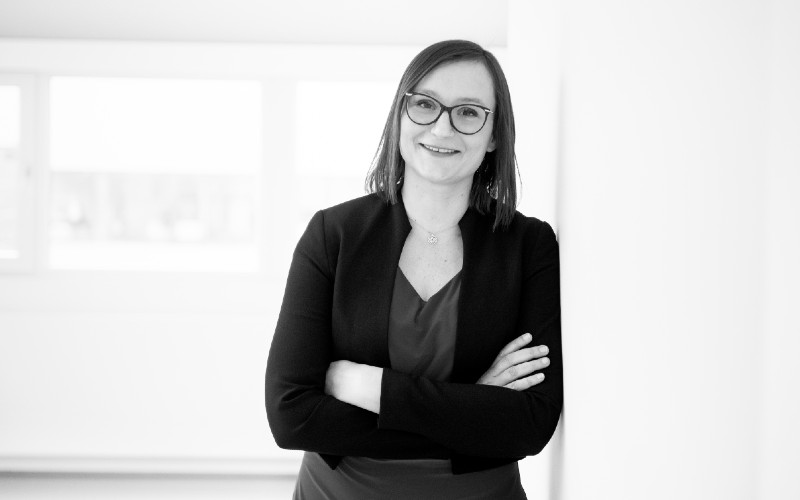‘She’s smarter than she looks.’
Marijke Koninckx says she is very rarely lost for words – but when an older man openly made this remark in front of her at a networking conference, she just didn’t know what to say.
Koninckx has worked in the male-dominated FinTech industry for two decades despite experiencing her share of bias. Rather than allowing it to cow her, however, she used it to her advantage.
“If people have an impression of you as making up the numbers, I always want to prove them wrong,” she tells BusinessCloud.
“I’ve experienced a lot of bias. Especially in the first years, I really had to put in effort to be taken seriously. That is unfair; but instead of letting it discourage me, it was also what drove me to become better at what I do – to become smarter than everyone in the room.”
Now Chief Product Officer at BankiFi – which placed sixth on our recent FinTech 50 ranking – Belgium-based Koninckx has performed a variety of leadership and project management roles over the years. She is helping to inspire future generations of girls and women into the sector.
She first encountered a male-dominated environment at university – where she would ultimately earn a Master’s degree in physics – having attended an all-girls school in Belgium in her teenage years.
“It turned my world upside down as almost all my classmates were male. Science and technology were male-dominated back then, and they still are – although fortunately that’s beginning to change,” she explains. “All the professors were male – one of my classmates at university actually went on to become the first female physics professor at that university.”
After a period working for Siemens her first role in FinTech was with Integri, helping to test tools for payment systems, after she was attracted by a job advert which highlighted company culture, fresh fruit and quality coffee.
“It triggered me because they were not talking about the traditional benefits such as salary, company cars and health insurance: I thought that it must mean they cared about people and the working environment rather than just making money and being successful as a business,” she recalls.
“These days, fresh fruit and bringing your dog to the office is essential to being labelled as a proper FinTech! But back then it stood out.”
The tech team featured just three women and more than 20 men. Koninckx is complimentary about the company, but highlights one example of the bias she experienced. “We had a very positive company culture; but at the beginning, when I was in my early 20s, I might go into a meeting with a client – middle-aged men who have been in business for ages – and they would see this young girl and say ‘what is she doing here?’
“Not everyone was like that, but I had several occasions when it happened. I think that probably encouraged me to to be as knowledgeable as I possibly could. Once I started talking, you would see all the bias go away because I could prove that I was an expert and that I knew what I was talking about.
“If you’re appreciated for your capabilities, that means much more than because of your job title, your age or the number of years you’ve done a job. When people understand that you really bring a lot of value to the table, everything else is just an aside.”
Integri was fewer than 30 people but growing rapidly, which led to a project management role. “I was allowed to develop my own management style because the company didn’t have formal processes and structures in place – we were all just learning as we went!” says Koninckx. “I had a lot of freedom to fulfil my role and had a lot of support from the management team at that point.”
She continues: “The company kept on growing and we decided that we needed formal product management roles. Again, they asked me if I wanted to be a product manager – and again I thought ‘why not?’ We were then acquired by Clear2Pay and we transitioned fairly quickly from that subsidiary into the main organisation.”
Clear2Pay – where she would meet BankiFi founder and CEO Mark Hartley for the first time – processed bank payments internally and connected them to clearing and settlement systems.
Koninckx faced something of a challenge when the parent firm acquired a French online banking provider. “It was bought for the client portfolio: they had a product, but it was fairly old. My task was to rebuild the whole project with the team in Belgium,” she explains.
“So I was working with that French team, which had been working on the product for a long time, to replace it with something else – and they weren’t even working directly on the new product!
“As someone from a different country with no background in online banking, that was interesting… I was able to build a good rapport with them, but it was quite difficult because I also felt for them.”
She jokes: “I’ve been to Paris more than 60 times and I’ve never seen the Eiffel Tower!”
Clear2Pay was sold to FIS for around €375m in 2014. Koninckx worked in product marketing for FIS for two years before performing a similar role at BPC Banking Technologies, a software solutions provider for e-payments, retail banking and self-service banking systems.
She says the products she has worked on are not susceptible to bias – but with others it is paramount that people from a variety of backgrounds and perspectives are included in the design process.
“I’ve worked on card processing, dispute management, fraud prevention, mobile wallets, online and mobile banking, interbank payment connectivity,” she explains. “That has very little to do with humans – it is just exchanging information, mechanics behind the scenes.
“If you look at savings or financial management products, there is an angle around gender to be considered, but also things like age – young people and people in their 60s look at how they use technology very, very differently.
“You always have your target audience for a given product; but you also need those different perspectives to get to a proposition that works for different types of users.”
She says BankiFi, which specialises in payment processing and financial administration services for SMEs, has a collaborative approach to developing its products. The Manchester firm has developed a technology platform which underpins the Co-operative Bank’s online banking offer, as well as a standalone app – Incomeing – for use by customers of any bank which allows SMEs to manage invoices, link their accounting software and receive payments.
“We have people with more experience and people with less experience, but they all have a voice. This is so valuable,” she says. “That collaborative atmosphere, where you operate as a team and you can bring input to the table no matter what your role is, leads to better products.
“I really believe in what we do on the technical side. We’ve got a fantastic tech team and a very, very good company culture, where people just get things done.
“If we run into a problem – as inevitably happens in software development – our team just gets together. We collectively look at how we can get it fixed. It is such a wonderful working environment.”
Banks face existential threat and must begin to think like SMEs
The company was recently recognised by Efma and Capgemini in its ‘Financial NewTech Watchlist 2021’, which highlights the top 100 global startups and scaleups reshaping the financial services industry landscape.
“It was really rewarding for our team to see that we’re doing something right. Capgemini is not a small organisation: they look into what’s happening in the market all the time and that was great recognition for us as a company,” says Koninckx.
She herself is part of the EBA open banking working group, a forum where banks and technology providers get together to work on leadership pieces around open banking.
“I’ve been part of that working group pretty much from the start. It’s actually a really good way to contribute to what’s going on around open banking,” she says.
“Being able to work firsthand with the banks and the other technology providers on strategy and how things need to progress from this point onwards is very meaningful because we know what’s going to come next very early on – but we’re also able to share our opinions with a group of industry experts.”
As a role model herself, Koninckx is keen to give back to future generations. “People who are a bit further in their working life have an obligation to help and encourage younger colleagues because we’ve lived through the experience. You don’t have all the answers, but you can share what you’ve learned and be a sounding board.
“I talk a lot to my female colleagues. One had a baby fairly recently. If you have a young child, it comes with challenges: you worry about being a good mum, it feels like you need to change plans a lot. It’s always good to have someone you can talk to that has gone through something similar. I’m not saying that being a dad is a non-event – on the contrary – but it’s just a different angle.
“Some of my colleagues are also very modest about their capabilities and I’ve tried to encourage them to be proud of what they know and what they do.”
She adds: “There are more role models today and more progressive leadership styles. I see a lot of activity happening in the FinTech industry, led by organisations such as Money20/20.
“The more women have leadership positions in the industry, and the more female software developers, QA engineers, DevOps engineers there are, the more it will also become an obvious career path for girls that are still in school today.
“They will see that it’s not just for men, just like being a nurse isn’t a job just for women. I think there’s already a lot of positive change compared to where things were 20 years ago, when I started.”


